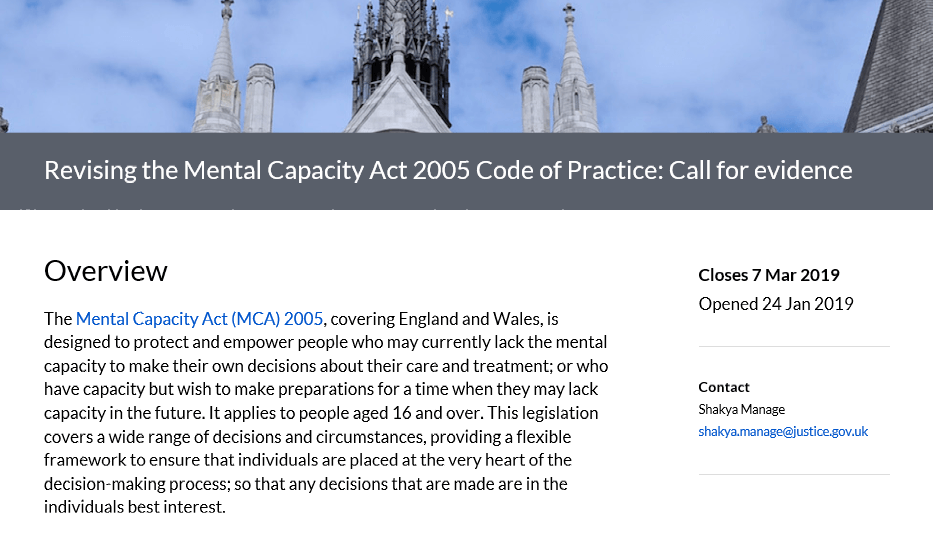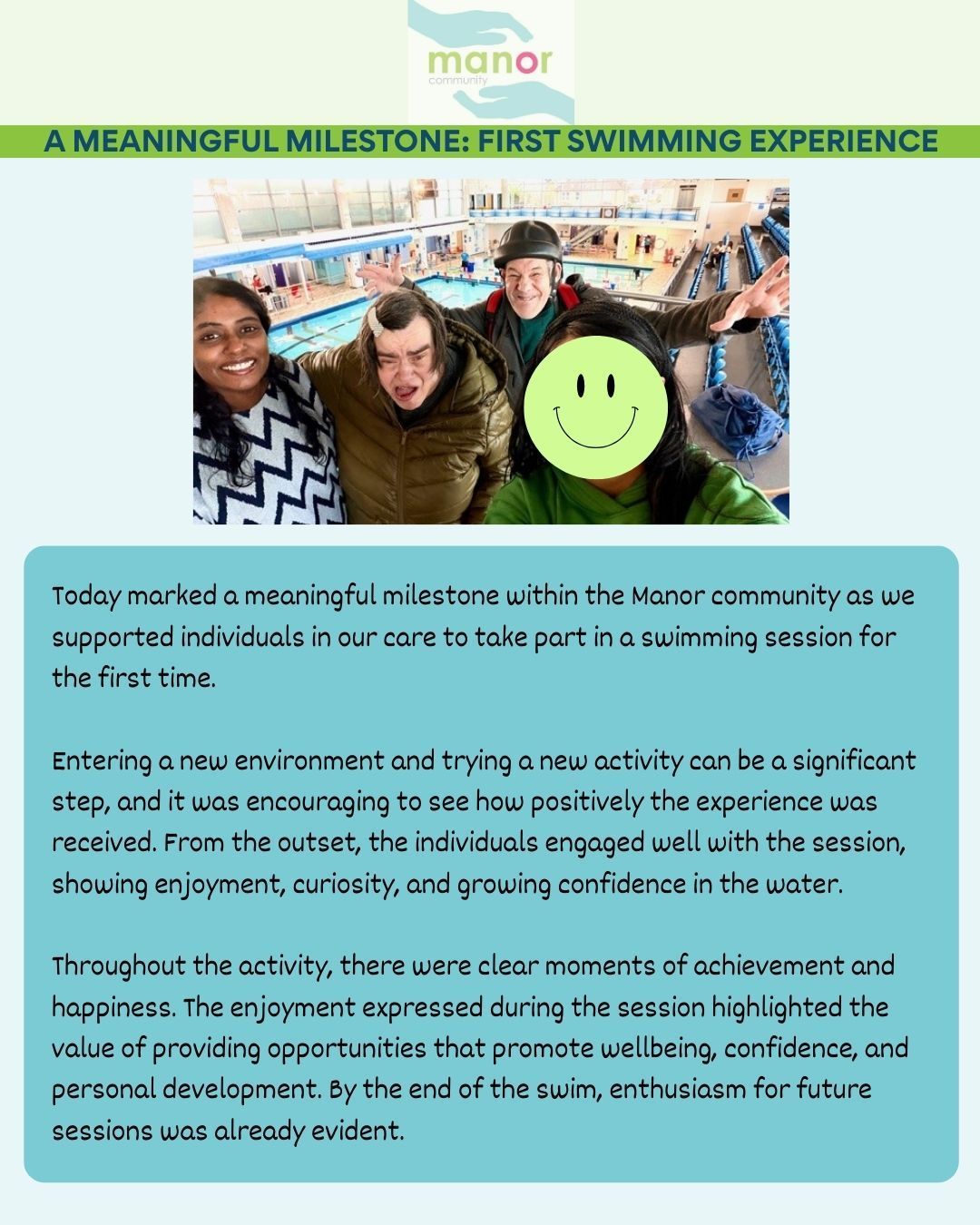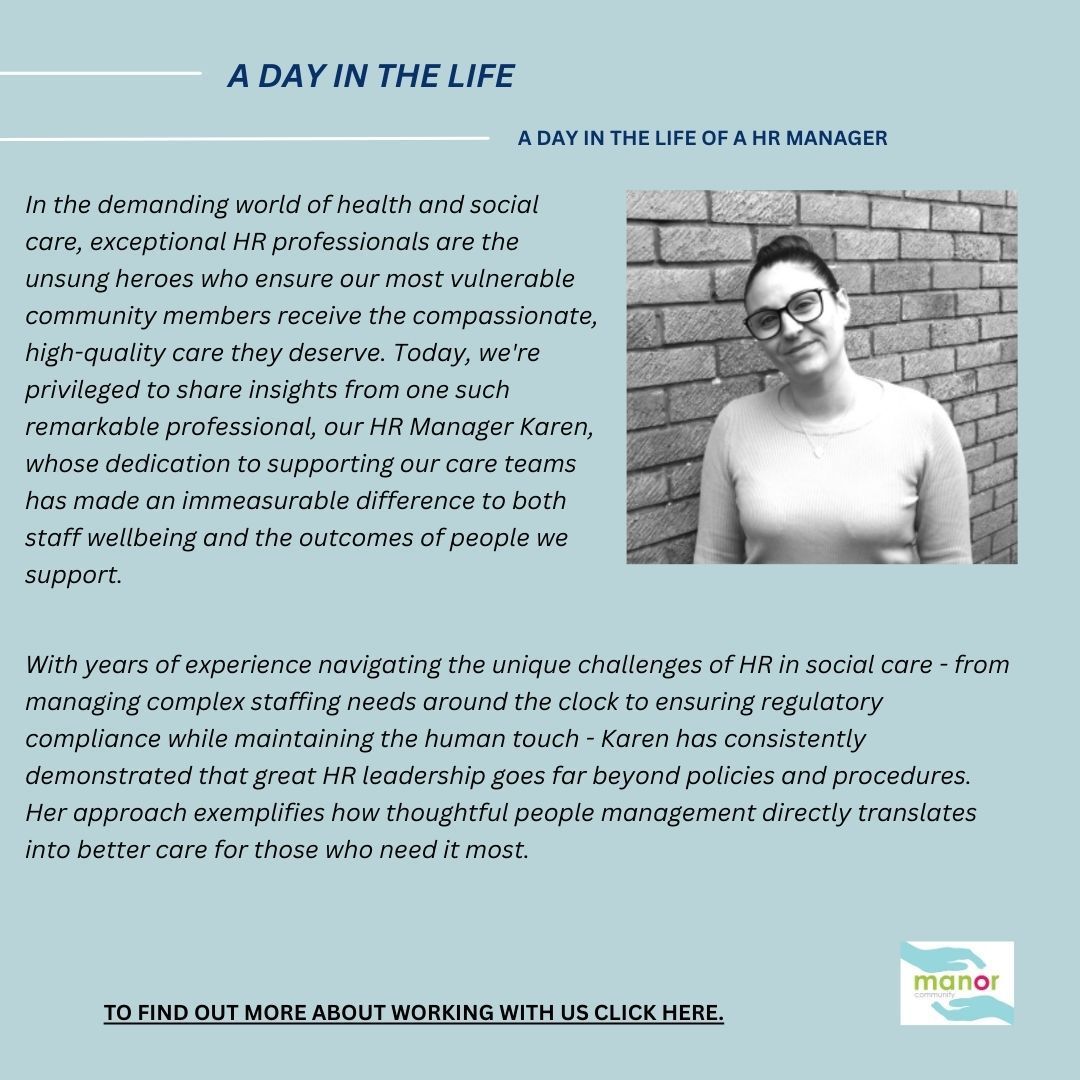Joining Instructions for Mental Capacity Act Webinar
Free Webinar for advice and guidance submitting consultation responses to update the Mental Capacity Act Code of Practice

Deadline
for Mental Capacity Act
consultation submission: 7 Mar 2019
( https://consult.justice.gov.uk/digital-communications/revising-the-mca-2005-code-of-practice/)
Free Webinar
including industry professionals and stakeholders: Mon 4 March 1pm
The free webinar will take place online with options to join either via desktop link or phone line.
Guided Webinar to
Discuss Submitting Responses for the Mental Capacity Act Code of Practice.
Mon, Mar 4, 2019 1:00 PM - 2:00 PM GMT
Please join my meeting
from your computer, tablet or smartphone.
https://global.gotomeeting.com/join/605836965
(This requires you to download a portal onto your computer that broadcasts the presentation and allows conversation - it may save time to download the portal ahead of Monday or our facilitators will be on hand a short while before 1pm to see that everyone is joining successfully.
You can also dial in
for audio and speech using your phone if that works better for you when listening to the presenters and contributing to the discussion of key points and chapters
(For supported devices, tap a one-touch number below to join instantly.)
United Kingdom: +44 330
221 0097
- One-touch: tel:+443302210097,,605836965#
Access Code: 605-836-965
First GoToMeeting? Let's do a quick system check: https://link.gotomeeting.com/system-check
You can download the portal ahead of time, just remember to follow the link on Monday afternoon to join the live event.
The deadline for responding to the Call for Evidence (Consultation) to the Mental Capacity Act Code of Practice is 7th March and fast approaching. The Code of Practice affects everyone working in social care. If you work in social care and haven’t responded because you haven’t had time, don’t really understand how to or not sure what difference you can make, please join our webinar at 1pm – 2pm on 4th March. Manor Community have joined up with Mental Health Lawyers to provide a forum for discussion and information on the Code of Practice. We will be encouraging people to bring ideas on how to improve the Code and we will collate these for a joint response, so if you’ve not had time to respond, don’t worry, we can do this for you. Alternatively, this webinar will help you make your own submission before the deadline.
Speakers will include Steven Richards – Director at Edge Training:
'Steven is a Director of Edge training and consultancy and has worked in the mental health field for over 20 years, both for the NHS and voluntary sector. He has been an in-patient advocate for Mind working across adult, older persons and PICU wards and as an advocate represented directly before the Court of Protection.' http://www.edgetraining.org.uk/
and Mik Alban, Development Director at Care and Support West:
'Proven track record of representation, negotiation, service development and operational management. Commitment to best practice, continuous improvement, developing core documentation and establishing effective working cultures
' https://www.careandsupportwest.com/
We want to make the consultation response as accurate and beneficial as possible, it is an important change that will affect a lot of people, so save the date, get ready to join and please share the details or a link to this blog to as many industry professionals and stakeholders as you can!




























